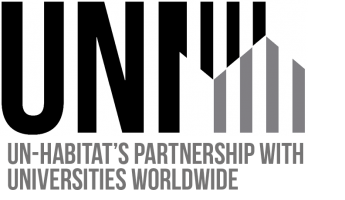
05Oct
CLIC participation at WORLD HABITAT DAY (UN-HABITAT) The human-centred development strategy to face the challenges of our century
Every October, UN-Habitat and partners organize a month of activities, events and discussions on urban sustainability. On 2020 Urban October activities began with World Habitat Day on 5 October.
The purpose of World Habitat Day was to reflect on the state of our towns and cities, and on the basic right of all to adequate shelter. Starting from the assumption that cities can reduce their environmental, economic and social diseconomies through the circular economy approach, the event focused on how the ‘territorialized’ model of circular economy – that say the ‘circular city’ model – is able to connect the historical centre and the consolidated city with the suburban territory by creating virtuous relationships between them.
The right to health and wellbeing can be achieved through the housing rights, granting everybody the access to adequate housing and services, thus promoting a more sustainable and inclusive urban future as a means to avoid potential future pandemics. The human-centred development, by combining the humanistic paradigm with the ecological one, builds on objectives and criteria emerging from the strategies of the Agenda 2030, New Urban Agenda and the European Green Deal.
The event was promoted by the Laboratory on Creative and Sustainable City – Department of Architecture, (DiARC) of the University of Naples Federico II, Naples, Italy in collaboration with UN-HABITAT Universities; UN-HABITAT World Urban Campaign; ICOMOS-ISCEC; Interdepartmental Research Centre on Urban Planning Alberto Calza Bini – University of Naples Federico II, Naples, Italy and the Research Project of Relevant National Interest (PRIN) founded by the Italian Ministry of University and Research (MIUR) “Metropolitan cities: territorial strategies and circular regeneration” (PRIN 2015).
CLIC Partners participated to the event. Anna Domaradzka (University of Warsaw) and Cristina Garzillo (Senior Coordinator ICLEI – Local governance for Sustainability, Freiburg) contributed to the session “Actions for reducing negative impacts of the city development”. Cristina Garzillo gave a presentation on “Re-inventing historic areas: an opportunity to turn challenges into transformation”. Conclusions were developed by Sigrid Stagl (University of Wien) and Prof. Luigi Fusco Girard, CLIC Project Scientific Coordinator.
Related presentation and material are available on the project website at: https://uni.unhabitat.org/speaker-presentations-during-the-world-cities-day/
